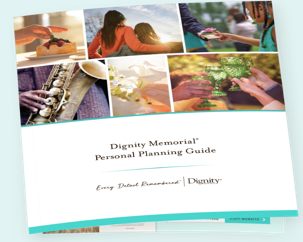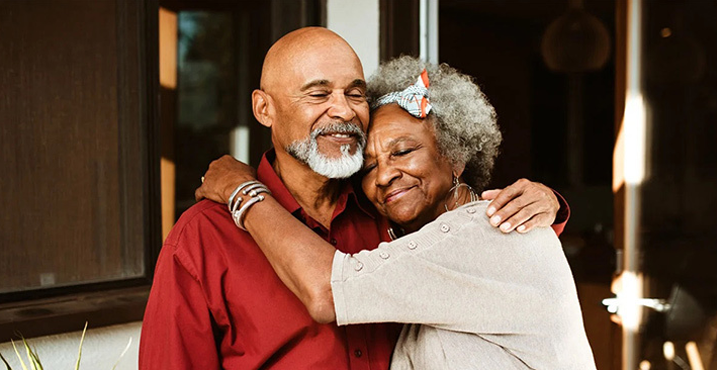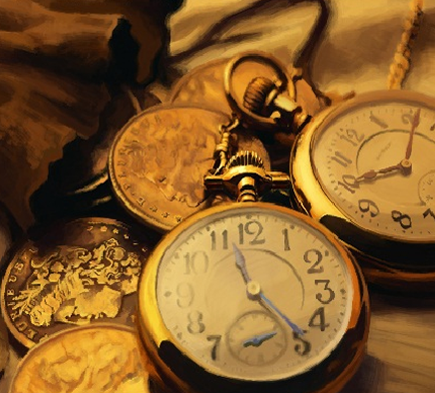
Today's Black funeral traditions blend many religious and cultural customs.
With influences from Christianity and Islam to African rituals, the funeral customs of Black Americans create a celebration of faith, hope and love not found in some of the more traditional and somber Western rites. Filled with effusive prayer, vibrant music and lots of delicious food, these celebrations facilitate generational strength and fellowship among family, friends and neighbors.
Here are a few things you may not know about Black funeral traditions:
• Origins of African American funeral customs
• Today’s Black funeral rituals
• Black burial traditions
• The repast
Origins of African American funeral customs
After African slaves were shipped across the ocean to America in the 1600s, they were not allowed to gather for funerals or other ceremonies. Their owners feared they would revolt. Because of that, many enslaved people were buried at night, without fanfare, in unmarked graves.
However, after the introduction of Christianity to the American slave population, slaves were allowed to gather for religious services, including funerals. Much to the surprise of their owners, enslaved Africans saw these events as a time of joyful exuberance. They celebrated their loved ones’ freedom from bondage and their souls’ return to home. Homegoing was the popular term for this celebration.
Today, the jubilant spirit of this expression remains, as a Black funeral is as much a time to celebrate life through song, prayer and community as it is a moment of mourning and sorrow.
Today’s Black funeral rituals
Black funerals today reflect a variety of faiths and rituals—and certainly the personality and passions of the loved one who has died—though most follow a certain sequence of events and etiquette.
How a family decides to celebrate their loved one depends on the person who has passed. If a matriarch or patriarch of the family has died, a funeral is often a grand affair with no detail left untouched. For a sudden or traumatic death, the sorrowful sequence of events requires more urgency. In all instances, an immediate period of mourning takes place after the loved one dies. The loss is heavy, yet fellowship is felt by all. Friends and family rally around, traveling from near and far, to pay their respects in person.
After the immediate moment of mourning, planning begins. Black funerals are a true celebration of life. From the program, music and remarks to flowers, decor and food, a great deal goes into planning, and the details are as elaborate as budget allows.
It’s common for Black funerals to follow a dress theme. For example, if the immediate family opts to wear navy blue, guests may be asked to coordinate by wearing various shades of blue. The theme often continues to other elements of the funeral and repast, with complementary flowers and decor.
Read What to Wear to a Funeral Service.
Read about Christian funeral traditions.

Having plans in order means gaining peace of mind.
Contact us to get your free Personal Planning Guide.
Read How to Write an Obituary.
After a loved one passes, there’s typically a viewing at the funeral home. It’s a chance for family and friends to pay their respects in a less structured fashion. The funeral will follow, usually in a funeral chapel or a church. The celebration is often quite large, with lots of guests. Black families often hold funerals on Saturday, allowing as many people as possible to attend.
During the service, some guests—neighbors, fellow churchgoers, classmates, colleagues, friends and family members—join clergy in offering prayers and giving eulogies that honor the loved one. Their stories and fond memories paint a picture of the life lived and the legacy that remains.
Read The Ultimate Guide to Writing a Eulogy.
An open casket is common at a Black funeral, and emotions can span the range from somber and melancholic to hopeful or even rapturous. Music plays an extremely important part in setting the tone. Filled with spirit and moved by song, guests may sing, clap, raise their hands in praise and prayer, or even dance. The syncopated sounds and high energy give those in attendance a chance to freely express their emotions and often provide healing to the hurt.
Common songs at Black funerals include Amazing Grace, God Is, Goin’ Up Yonder, I Can Only Imagine, I Shall Wear a Crown, I’m Free, Precious Lord, Trouble of the World and When You Hear of My Homegoing.
See our list of more than 100 celebration of life songs.

Black burial traditions
Though more and more families are choosing cremation, burial is still the more common choice for Black families. The customs associated with burial after a Black funeral begin with a funeral procession from the church or funeral home to the cemetery. Common in many cultures for thousands of years, the funeral procession signifies a collective effort to see the loved one to their final resting place.
If the funeral takes place at a church or funeral home too far to walk with a casket, the procession takes place by car, often with a fleet of shiny black sedans for family leading the way. However, if the funeral takes place in close walking distance to the cemetery, a procession by horse-drawn carriage with the family following on foot is sometimes preferred.
Unlike the celebration of life that takes place during the funeral service, the burial itself can be an overwhelming time of sadness and mourning. More eulogies and somber songs may be shared, and it’s a sorrowful moment for all.
The repast
After the burial of a loved one, family and friends often gather again at the funeral home or the home of a friend or family member for a repast. An occasion to focus on food and fellowship, the repast signifies the realization of life anew without the physical presence of their loved one.
By gathering once more, family and friends remember, reflect and rejoice in positivity, strength and support. The repast provides a moment of sweetness in an otherwise somber time, much like the traditional pound cake and cobbler found at the table.
Learn about our catering and reception services

Let us help you plan a funeral that honors your family's traditions
We Believe in Honoring The Memory of Your Loved Ones !
We hope that by now you have developed a good sense of how we at Goldstar Memorial Solutions believe in the power of integration — integrating all of our memorial services, facilitated by our unique professional collaborative partner network, into one unified concept, with each service personally tailored to your individual needs.
As you explore the rest of our site by clicking and navigating, with ease and at your leisure, to each page of the site, enjoy the interactive experience. Then, or at any time, we invite you to press any one of the gold hyper-link buttons below to watch our memorial video and to receive the e-book summary of our services, so that you can refer to it any time, and request in our calendar a time for us to speak.
Please feel free to contact us by email, or to chat with us, now or any time,
online or by calling us at (888) 640- 8988, with the best time to reach you, to begin the conversation about how
Goldstar Memorial Solutions can make the difference for excellence in your future.




